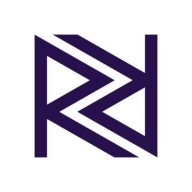

Azure Data Factory and Rivery compete in the data integration space, each offering distinct advantages. Azure Data Factory is advantageous for those leveraging Microsoft Azure services heavily, while Rivery focuses on automation and scalability, appealing to businesses managing large data volumes.
Features: Azure Data Factory provides native integration with Azure services, advanced data orchestration, and comprehensive data transformation options. Rivery offers automated data pipelines, outstanding scalability, and easy adaptation to dynamic environments, catering to complex data workflows.
Ease of Deployment and Customer Service: Azure Data Factory may present deployment challenges but benefits from robust support within the Microsoft ecosystem. Rivery features a straightforward, no-code deployment, making it accessible to organizations with limited technical expertise. Both offer extensive customer support, though Rivery's simplified approach can appeal to teams with fewer resources.
Pricing and ROI: Azure Data Factory's flexible pricing aligns with Microsoft's other services, creating potential cost efficiencies for users within the ecosystem. Rivery's pricing structure is more transparent and can seem higher; however, the potential for significant ROI from its advanced capabilities is attractive for data-centric operations.

Azure Data Factory efficiently manages and integrates data from various sources, enabling seamless movement and transformation across platforms. Its valuable features include seamless integration with Azure services, handling large data volumes, flexible transformation, user-friendly interface, extensive connectors, and scalability. Users have experienced improved team performance, workflow simplification, enhanced collaboration, streamlined processes, and boosted productivity.
Rivery is a serverless, SaaS DataOps platform that empowers companies of all sizes around the world to consolidate, orchestrate, and manage internal and external data sources with ease and efficiency.
By offering comprehensive data solutions and partnering with complementary technology providers, including Google, Snowflake, Tableau, and Looker, Rivery enables data-driven companies to build the perfect ecosystems for all their data processes.
We monitor all Data Integration reviews to prevent fraudulent reviews and keep review quality high. We do not post reviews by company employees or direct competitors. We validate each review for authenticity via cross-reference with LinkedIn, and personal follow-up with the reviewer when necessary.